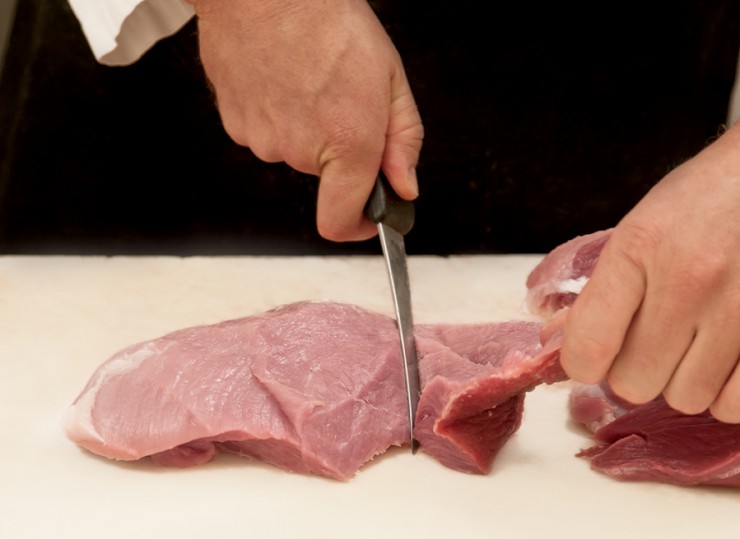Home > Virginia > Virginia Farm to Table > Virginia Meat Inspection is Well Done
Virginia Meat Inspection is Well Done
In partnership with: Virginia Department of Agriculture and Consumer Services

Barry Jones has devoted his career to ensuring that the meat you consume is safe.
As inspection manager for the Virginia Department of Agriculture and Consumer Services, Jones supervises a 35-member team that covers livestock processing facilities throughout the state.
“We regulate a lot of family-run facilities – some go back as many as four generations. They are good people,” says Jones. “We work to ensure that meat is derived from a healthy animal and a sanitary facility, and that all live animals are humanely handled by processors.”
Jones and his team do so in a variety of ways, including visual inspections, laboratory analysis and plant record verification.
With 35 years in the industry, Jones has seen food safety evolve. “Meat is still processed in the same way – and inspectors still wear white hats and white coats – but the way those inspections are done has changed dramatically,” he says.
One key change is a greater reliance on science. “You can’t see bacteria, and it’s hard to fight what you can’t see. That’s why sampling and laboratory analysis have become so important,” says Jones.
The state inspector’s job is to make sure plants do what they say they’re going to do in terms of sanitation, food safety and labeling. Both inspectors and plant owners conduct inspections and product sampling to ensure quality.
These days, the relationship between regulator and producer is more likely to be collaborative than confrontational, according to Gary Grigsby, co-owner of Pride of VA, a food manufacturer and distributor.
“In Virginia, our inspectors do not come down on us in a dictatorial manner,” says Grigsby, unless immediate action is needed. “If they see something we need to change, we collaborate to identify and implement an appropriate solution.”
Beyond that, the state provides guidance to help prospective producers navigate the maze of regulations.
“When someone is thinking about opening a processing facility, we work with them from the ground up and help them get started,” Jones says. “We wear lots of different hats.”
Grisby agrees. “When I bought this business with my partner 11 years ago, I did not have a background in food,” he says. “I was trained by one of the state’s own people so I could write our hazard plan. They were really a Godsend to me.”
Grigsby continues to rely on inspectors for the latest research and best practices in food safety and sanitation. “They are a great resource,” he says.
Jones says, “Our goal is to provide safe, wholesome product to consumers. Whatever we need to do to get that done, we’ll do that.”



